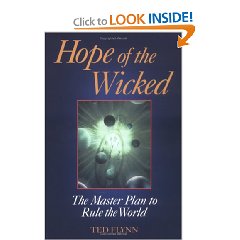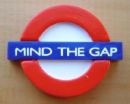
Essential Foundation for Understanding Worst Case View,
Ted Flynn
I truly respect this author and this book, and along with Crossing the Rubicon and Rule by Secrecy, would put it way up there among the books from this point of view.
Personally I believe that the US Government is populated by good people trapped in a bad system, and that most laws have dual purposes–one as understood by the rank and file in government, the larger one at the very highest levels where the White House and the Wall Street elite (a handful of individuals) speak in studied privacy.
The author is completely correct to point out that war is a foundation for profit at the highest levels, where the banks will support both sides and be the only winners. I would reinforce the author by pointing toward General Smedley Butler's book, War Is a Racket: The Anti-War Classic by America's Most Decorated General, Two Other Anti=Interventionist Tracts, and Photographs from the Horror of It and the DVD Why We Fight.
There are other good reviews of the substance of this book, so I want to focus this review on an emerging Collective Intelligence/Natural Capital line of thinking. Collective Intelligence represents to power of the people to attack themselves like leeches to specific corporations and out their misdeeds and bad practices in detail. Natural Capital, something that Paul Hawken has been pursuing since he first helped write Seven Tomorrows and later the The Ecology of Commerce, suggests that the commercial world can only be saved–can only achieve sustainable long-term profitability–if it goes green to both reduce its impact on the environment and to offer the public genuinely intelligent design.
The more I read in this literature, the more I am persuaded that it is both correct and reaching critical mass, yet at the same time, I perceive a positive possibility that the Exxons and Goldman Sachs of this world may finally be on the verge of realizing that if they do not reform themselves, they will be put out of business by a global informed public.
So I would end by saying that this book, and Natural Capitalism: Creating the Next Industrial Revolution are bookends for the public mind, both essential, neither complete in and of itself.
Click Here to Vote on Review at Amazon,
on Cover Above to Buy or Read Other Reviews,
I Respond to Comments Here or There




